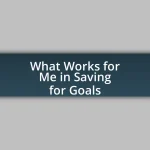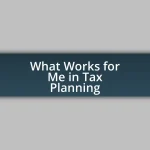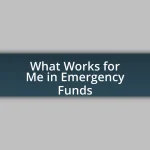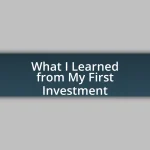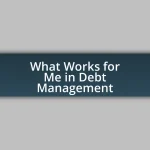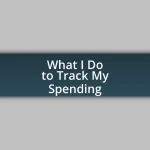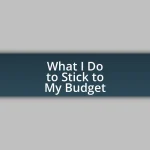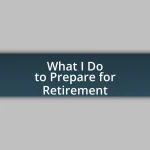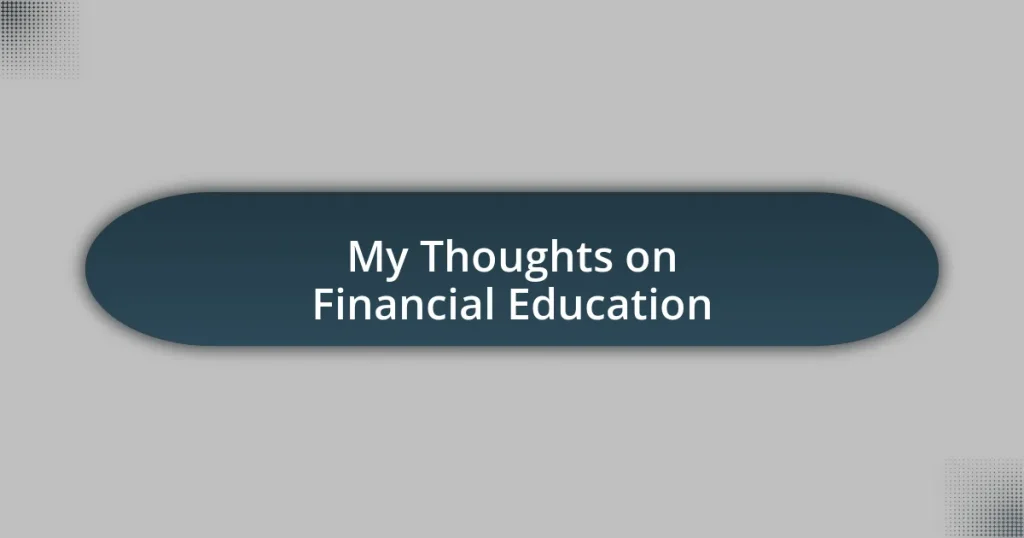Key takeaways:
- Financial education empowers individuals to manage money effectively and contribute to community economic stability.
- Key principles of financial literacy include budgeting, understanding credit, and saving for emergencies.
- Essential money management skills encompass budgeting, negotiation, saving, spending awareness, and goal setting.
- Investing basics introduce concepts like diversification and compound interest, crucial for long-term wealth building.
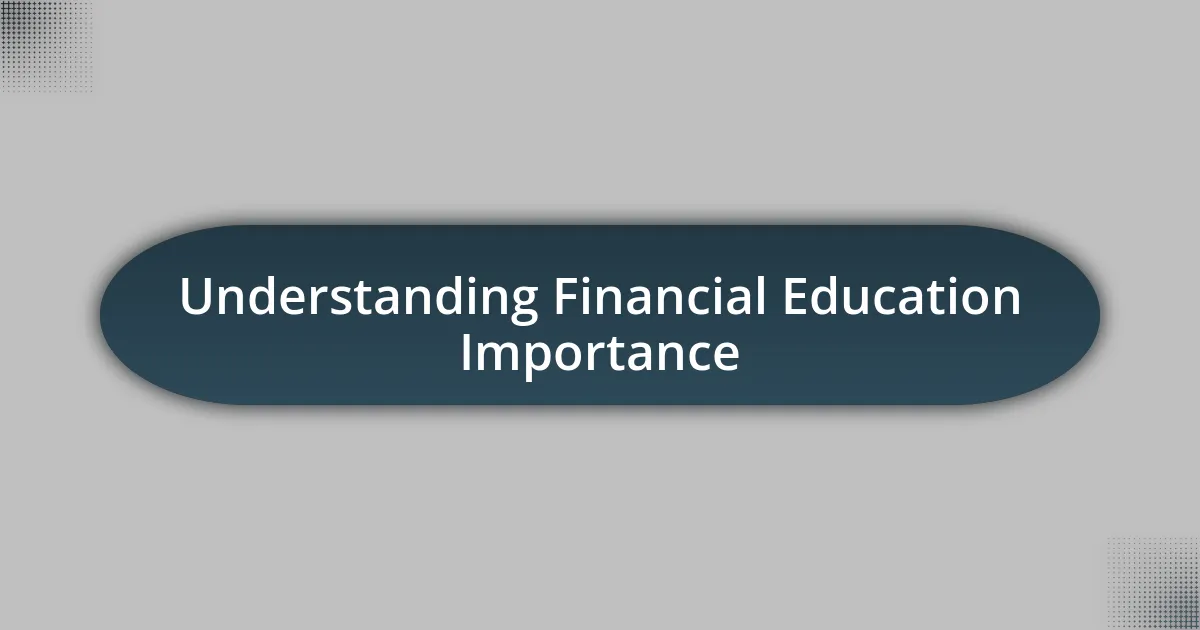
Understanding Financial Education Importance
Financial education is critical because it equips individuals with the skills needed to navigate a complex economic landscape. I remember my first budgeting experience; it was daunting but eye-opening. Realizing how understanding my income and expenses could impact my decisions felt empowering.
Have you ever felt lost when it comes to managing money? I know I have. It’s easy to overlook the significance of financial literacy until you’re in a situation where your lack of knowledge holds you back. This leads to stress and uncertainty, which is why mastering financial concepts can bring clarity and confidence to our daily lives and long-term goals.
Moreover, fostering financial education isn’t just about personal gain; it’s also about contributing to society. Educated individuals can make informed decisions that promote economic stability and growth. I’ve seen communities thrive when their members understand finances; it’s like watching a garden bloom with the right nurturing. Wouldn’t you want to be part of that transformation?
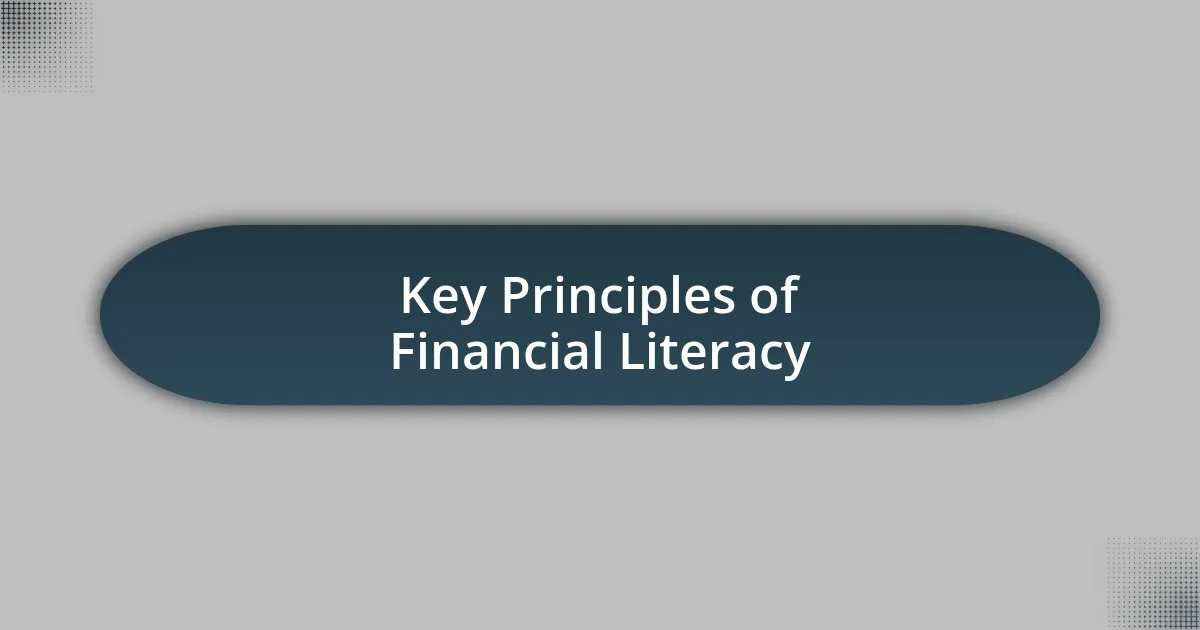
Key Principles of Financial Literacy
Financial literacy encompasses several key principles that help us manage money effectively. One of the most important is budgeting. I remember the first time I created a budget; I was amazed at how tracking my expenses brought a sense of control. It felt like an intricate puzzle coming together, where each piece represented a financial choice I made.
Another vital principle is understanding credit. I learned the hard way about the importance of maintaining a good credit score after applying for my first loan. When I received my interest rate offer, it hit me that my financial decisions from years prior were now influencing my current options. This revelation is quite common; we often don’t realize how our past choices can impact future opportunities.
Lastly, saving for emergencies is crucial. I wish I had established an emergency fund earlier in my life; it would have alleviated so much stress during unexpected situations. From my experience, having that safety net not only brings peace of mind but also empowers you to make better financial decisions without panic.
| Key Principle | Explanation |
|---|---|
| Budgeting | Tracking income and expenses to maintain financial control. |
| Understanding Credit | Awareness of credit scores and their impact on borrowing. |
| Emergency Savings | Setting aside funds for unexpected expenses. |
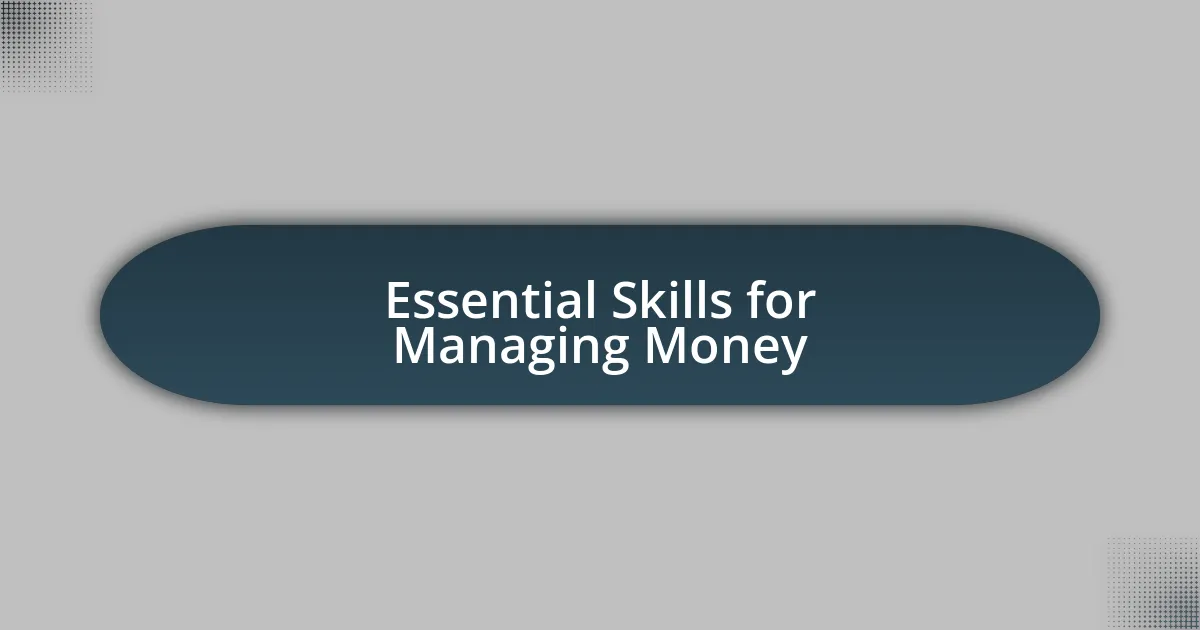
Essential Skills for Managing Money
Managing money effectively requires a set of essential skills that often go beyond mere arithmetic. I remember when I first attempted to negotiate a better deal on my bills. It was nerve-wracking but exhilarating. I realized that haggling was not just about saving a few dollars; it was about advocating for myself. This skill, along with the ability to differentiate between needs and wants, can transform your financial landscape.
To solidify your foundations in money management, consider developing these essential skills:
- Budgeting: Creating a realistic budget to track your income and expenses.
- Negotiation: Learning how to discuss prices and terms to secure better deals.
- Saving: Regularly setting aside money for both short-term goals and long-term investments.
- Spending Awareness: Cultivating mindfulness around your purchases to distinguish between necessities and luxuries.
- Goal Setting: Defining clear financial objectives to guide your saving and spending decisions.
Each of these skills can significantly contribute to achieving financial stability and independence.
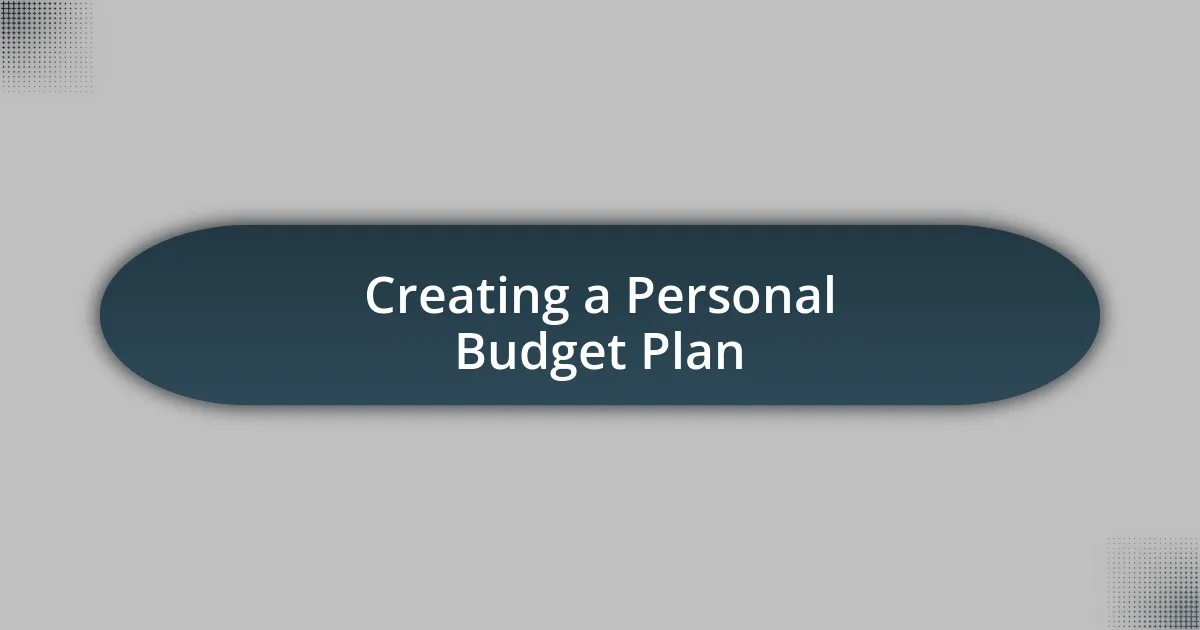
Creating a Personal Budget Plan
Creating a personal budget plan is more than just crunching numbers; it’s about understanding your financial priorities. I vividly recall the first time I sat down with pen and paper, trying to map out my income against my expenses. It felt overwhelming at first, but as I laid everything out, clarity emerged. Did I really need that subscription service I hadn’t used in months?
As you develop your budget, what worked for me was categorizing my expenses into fixed, variable, and discretionary. This helped me see exactly where my money was going. I remember realizing that I was spending more on takeout than I had anticipated. It opened my eyes to the opportunities I had to trim my spending, allowing me to allocate more funds toward savings—something I desperately needed at the time.
It’s crucial not to treat budgeting as a one-time activity; it requires ongoing adjustments. I periodically review mine, especially when my circumstances change, like a new job or unexpected expenses. I find that asking myself how my priorities shift helps adapt my spending plan. Do you check in on your budget regularly, too? Over time, I’ve discovered that this practice not only aids in maintaining financial discipline but also leads to a sense of accomplishment each time I see my savings grow.
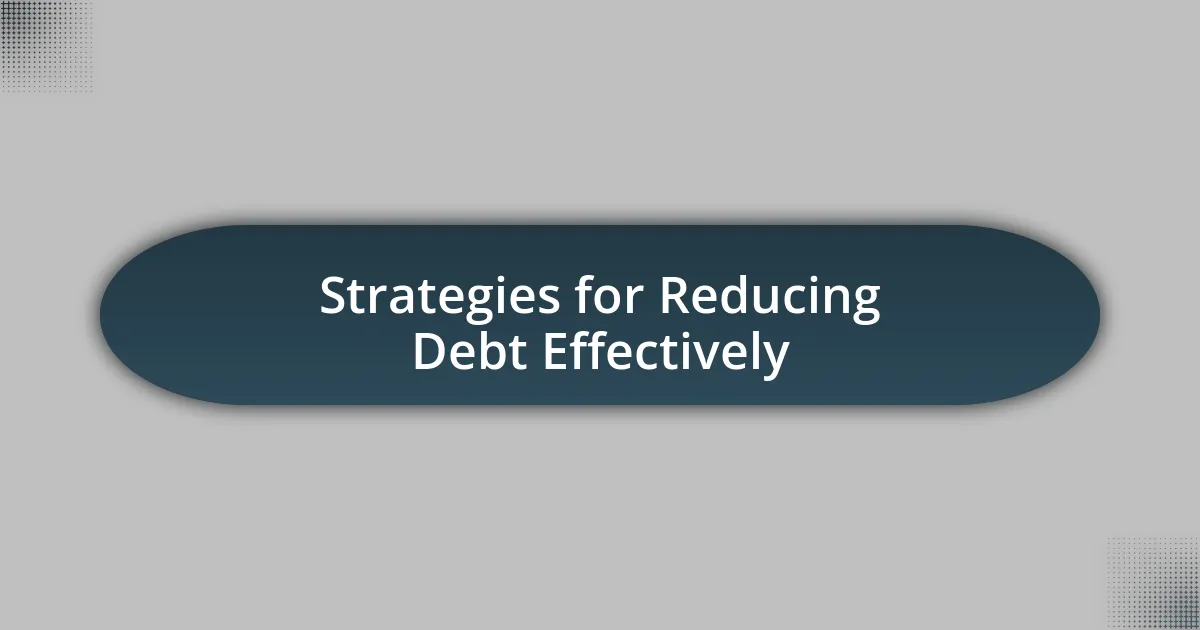
Strategies for Reducing Debt Effectively
One effective strategy for reducing debt is the snowball method. When I first learned about this approach, it resonated with me instantly. The idea is to tackle your smallest debts first, paying as much as you can while making minimum payments on larger ones. As you eliminate each small debt, the feeling of accomplishment builds momentum—kind of like a snowball rolling down a hill, gaining size and speed. Have you ever felt that rush after clearing a debt? It can be incredibly motivating.
Another helpful tactic involves negotiating your interest rates. I remember reaching out to my credit card company, feeling a bit nervous but knowing it was worth a try. To my surprise, they were open to discussing my account and even offered to lower my rate. Little did I realize how much a slight decrease could save me in interest fees over time. It taught me to be proactive about my financial situation—after all, it never hurts to ask, right?
Finally, I wholeheartedly believe in the power of a debt repayment plan. Writing down clear goals for repayment changed my entire perspective. The act of outlining exactly how much I owed and creating a timeline to pay it off made the process feel more manageable. I still remember the relief I felt as I checked off each milestone. Have you tried setting specific repayment goals? They can provide clarity and make the climb out of debt feel less daunting.
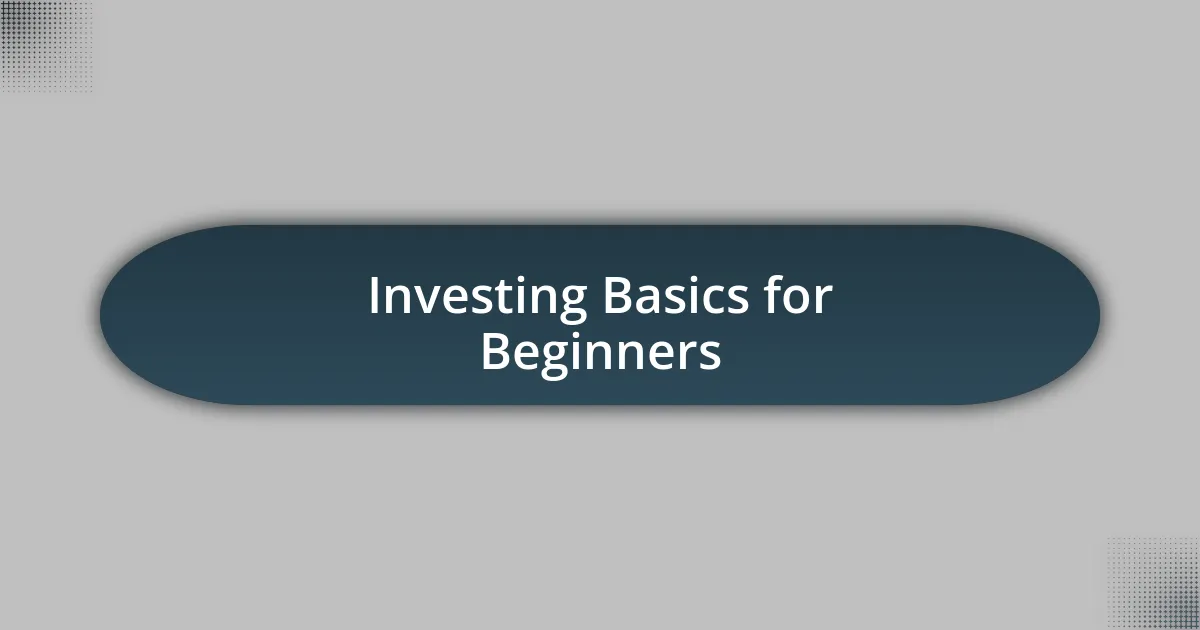
Investing Basics for Beginners
Investing can feel intimidating for beginners, but understanding the basic concepts can make a huge difference. When I first dipped my toes into the world of investing, I was struck by the importance of the stock market. The thrill of seeing my investments grow, even if just a little, sparked a newfound enthusiasm for financial growth. I often found myself wondering, “How can I build wealth over time?” and realizing that investing was the answer.
Diversification is another critical principle I learned early on. I remember hesitating before investing in multiple assets because it felt safer to put all my money into one place. But learning that spreading my investments across different sectors could mitigate risks was eye-opening. It’s akin to not putting all your eggs in one basket—no one wants to watch their financial dreams crumble if a single investment falters. Have you considered how diversifying could protect your financial future?
Lastly, understanding the concept of compound interest truly changed my perspective on investing. Initially, I didn’t grasp how earning interest on interest could work in my favor. The first time I ran the numbers, it was like a lightbulb went off. The more I invested early on, the more I realized I was setting myself up for long-term success. Have you thought about how even small amounts can grow significantly over time? Recognizing this principle can be a game-changer for beginners.
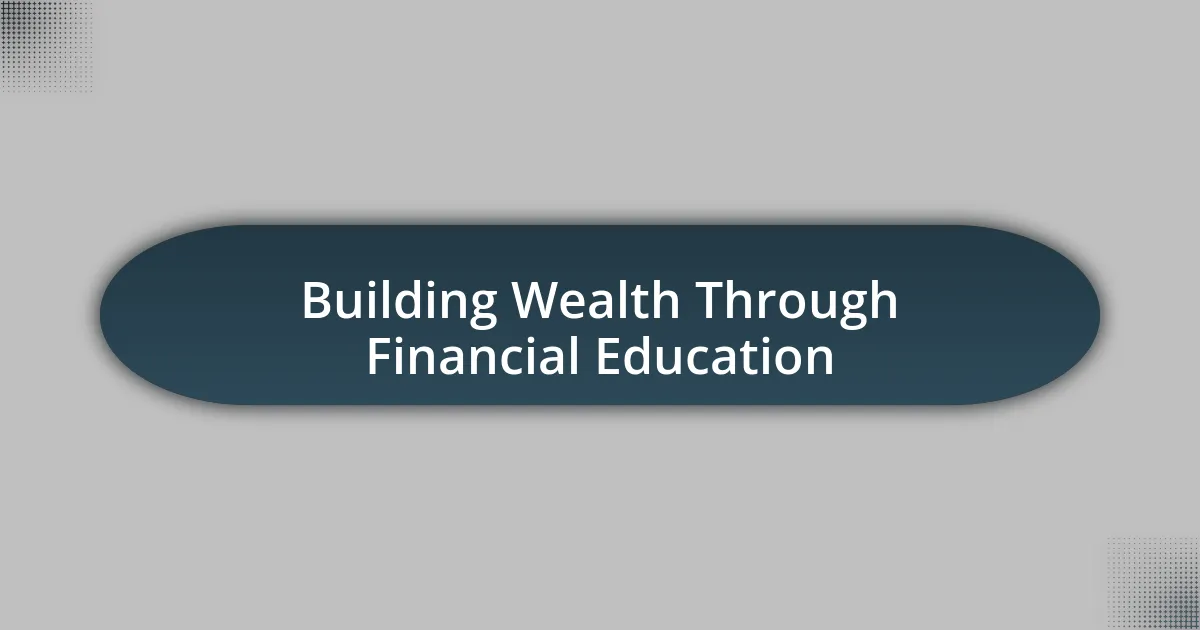
Building Wealth Through Financial Education
Building wealth through financial education isn’t just about numbers; it’s about mindset. I vividly recall the moment I attended a financial literacy workshop. The facilitator shared stories of everyday people who had transformed their financial situations simply by learning how to budget and invest wisely. It struck me then that financial education is empowering—it gives you the tools to take charge of your financial destiny.
As I continued my journey, I became increasingly aware of the misconceptions surrounding wealth building. Many think that significant wealth comes only from high salaries or luck. I used to believe that too until I learned that the real key was consistent, educated decision-making. Have you ever considered how much your financial choices today could impact your life tomorrow? Shifting my perspective from a fixed mindset to a growth mindset made all the difference in my approach to finances.
Equipped with knowledge, I started creating a financial plan tailored to my goals. It was a liberating experience to map out my path to wealth, complete with budgets and investment strategies. I can’t stress enough the satisfaction that came from tracking my progress and seeing my efforts materialize into tangible results. Have you taken the time to visualize your financial future? Embracing financial education as a lifelong journey not only builds wealth but fosters a sense of control and confidence in life’s uncertain waters.


